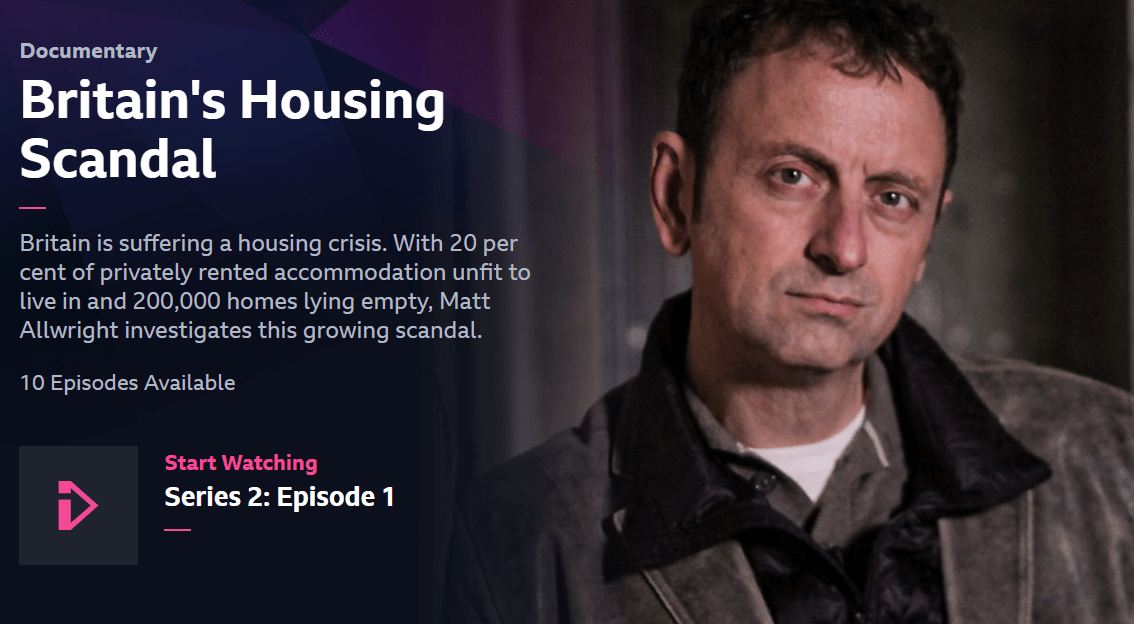By Mark Langabeer, Newton Abbot Labour Member
As many as 750,000 renters in Britain are behind on their rent. This figure has increased by 450,000 since the beginning of the pandemic, according to the Resolution Foundation, and the coronavirus crisis will only intensify the housing crisis.
A BBC series, Britain’s Housing Crisis, presented by Matt Allwright, dealt with housing crises in 2020 and the second series now brings the dreadful picture up to date. In the first programme, Allright points out that there are one million people on a housing waiting list in the UK. There are also around one million private renters living in substandard accommodation.
Johnson’s claim that his Government has placed an arm around the British public rings hollow for many private renters. Only 3% of them have secured a lower rent over the past ten months.
Highlights shocking conditions
Allwright says that there are about 200,000 empty homes in the UK. He visits Britain’s major cities, highlighting some of the shocking conditions that many suffer in the private rented sector. For example, he visits Birmingham, Britain’s second largest city, where 13,000 are on a waiting list, yet 10,000 homes are empty. He believes that councils, charities and developers can all play a role in solving this problem, but in my view, this is the equivalent of putting a sticking plaster over a gaping wound. Only government can change this state of affairs, and it needs a massive programme of council house building and compulsory purchase of empty properties.
The series reveals the dangerous conditions that many tenants have to endure, and it reveals the limitations of the powers of council housing departments. Housing officers can impose improvement and prohibition notices, but it is not done often enough. In Liverpool, landlords must get a licence, but it is estimated that around 1,000 properties are unlicensed.
Allwright visited Haringey, in North London, and showed the difficulties with flats with multiple ownership. Previously, flats might have had one landlord – usually the council. But accountability is harder to establish in multiple-owned premises. He reported on a developer who had converted a disused hotel into five apartments, with a monthly rent of £1,250 or £300,000 to buy. For most, this is simply unaffordable.
Allwright pointed out that demand is outstripping supply and there was one example in Haringey of six people living in a single house, who were all paying £550 per month. To add insult to injury, the house was deemed substandard and renters were evicted under section 21 (no fault evictions) because it was cheaper to repair the house unoccupied.
Housing: departments within departments
Another guy was living in a tent on land owned by the council. This was illegal and he was advised that he would have to vacate. However, the issue of his homelessness was not the responsibility of this housing officer and he was advised to contact another staff member of the same department.
Allwright points out that putting empty properties back into use is a slow process. He cites the example of a council in Scotland, which has 140,000 households on waiting lists. In this instance, it took ten years before a house was restored as a home to live in. This BBC series is good at highlighting some of the squalor that millions endure in Britain today. However, it is light on solutions to the housing crisis.
This brings me to another point that may or may not be related. Labour is accused of not being ‘patriotic’ and recent utterances from Labour’s frontbench appear to echo this claim. But until Britain provides homes that are both habitable and affordable, then my flag will remain firmly red.
The series, Britain’s Housing Crisis, would make a very good vehicle to promote discussion in any Labour Party or trade union meeting. It available on the BBC’s i-player service here.



